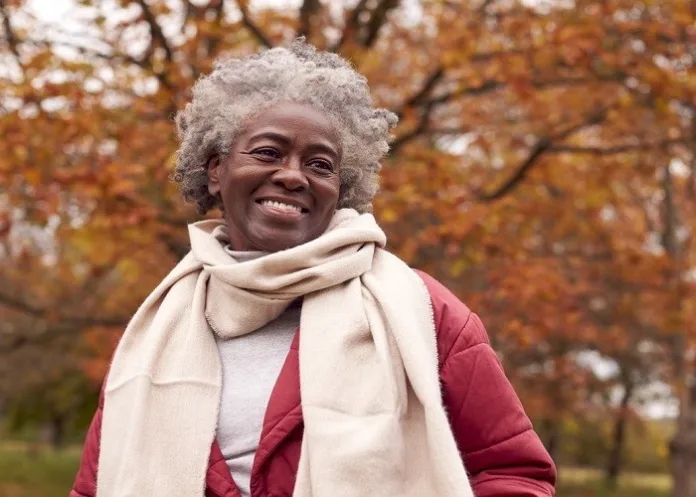CNN chief medical correspondent Dr Sanjay Gupta believes you should make the most of whatever age you are, and that changing your mindset can add years to your life.
He writes:
I’ve been thinking a lot about ageing lately. I’m turning 54 this year, so by all chronological measurements, I am middle-aged. But, if you were to ask me how old I feel, I would say mid-30s. I consider my 50s to be the best decade of my life so far.
The fact is, we all have this in common. No matter our location, culture, socio-economic status or even political affiliation, we are all getting older, every minute of every day. And “ageing is certainly better than the alternative”.
So I have always been surprised there is such a societal stigma attached to it.
Maybe it’s because there are so many misperceptions around ageing and about what getting older is supposed to look and feel like. And maybe it has something to do with the fact that everywhere you look, you see “anti-ageing” products.
The reality is that ageing doesn’t have to be a sunsetting period from which we shy away.
After all, there are countless people who have thrived and continued to improve throughout their lifetimes
What’s age got to do with it?
Why do we grow old? What’s happening to our bodies with the passage of time? And at what age does a person officially become old?
Historically speaking, old age was considered by scholars and writers to start around 60, which seems a bit out of step with our contemporary times when, after all, 50 is the new 40 or maybe even 30.
But even a 2009 Pew Research survey of Americans adults pegged that number at 68. (That was the average of all answers; tellingly, survey respondents aged between 18 and 29 put the number at 60, while those 65 and older said 74).
When I ask my teenage daughters, “when does old age begin?” they typically answer with something like, “Well, how old are you?”
But this is the best decade of my life so far, and I have never felt more fit. Being a scientist, I have always been driven to measure things. So every year on my birthday, I time myself running a mile on the same route as fast as I can.
Importantly, I haven’t got any slower throughout the 15 years I have been doing this – in fact, my time has actually improved recently.
And if you look at the world record running times for men and women, according to World Masters Rankings, there is only a slight slowing between ages 35 and 70, with real slowing not happening until 85.
This aligns with a paper I read recently about how biological age can be measured by analysing blood samples for levels of a few hundred proteins. What was most fascinating is that the researchers found that we don’t age at a constant rate throughout our lives but rather in bursts, with the biggest changes coming around ages 34, 60 and 78, on average.
The question, to me, becomes how we can make those bursts smaller, less pronounced, to slow our eventual decline, because after all, ageing is the biggest risk factor for many diseases, such as heart disease, Alzheimer’s and cancer.
We know that diet, physical activity, sleep and stress are all factors in the equation. But there are nuances here.
For example, Paul Holbrook, a certified strength and conditioning coach and the founder of a gym called Age Performance that caters specifically to older bodies, argues that surges of intense activity are actually better than spending a long time on endurance exercises.
Holbrook’s point is that with these sudden surges of activity, you get the same heart and lung benefits as provided by endurance exercises like jogging, but you also work out your fast-twitch muscle fibres.
These are what keep us spry, strong and able to move quickly – and which we tend to lose more quickly as we age.
Those muscles help prevent falls by increasing strength and balance, and if you do fall, your reflexes are faster, so you can react more quickly to reduce injury.
Falls are probably the biggest concern I have right now for my parents, who are in their 70s – almost 80s, in my dad’s case. According to the US Centres for Disease Control and Prevention, more than one out of every four people 65 and older has a fall each year. And of those falls, one in five results in a serious injury, like a hip fracture or a head injury.
That can take away a person’s independence in a heartbeat or erase decades of preventive efforts like keeping blood pressure, cholesterol and weight in check – things that millions of people do.
A few weeks back, I operated on an 80-something-year-old who fell and hit his head; even though he was in fairly good shape, he didn’t have enough muscle tone or fast-twitch fibres to stabilise himself and prevent the fall.
Fortunately, he did very well in his recovery, in part because he was found quickly. But for too many seniors, a fall like that is associated with progressive and even terminal decline.
Becca Levy, author of Breaking the Age Code and a professor at Yale University, is absolutely convinced you can objectively add years to your life by simply tweaking your mindset about ageing.
I’ve already done so.
CNN article – Dr Sanjay Gupta: It’s time to rethink what we call ‘old age’ (Open access)
See more from MedicalBrief archives:
Psychological factors substantially contribute to biological ageing – CHARLS study
Acceleration of biological ageing by stress can by modulated by developing psychological resilience
Fasting may boost metabolic activity, slow ageing
Life-long exercise regime slows manifestations of ageing

